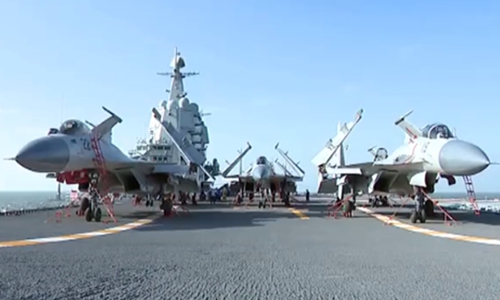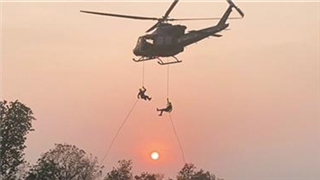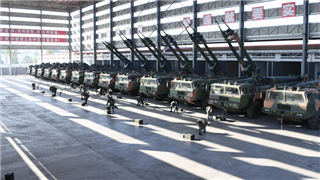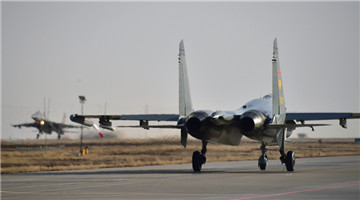
China's second aircraft carrier sails through the Taiwan Straits into the South China Sea. Photo: screenshot from the Weibo account of the PLA Navy
By Liu Xuanzun
Chinese armaments companies have postponed planned work in order to concentrate on controlling the risk of spreading the novel coronavirus (2019-nCoV), including those building the country's new aircraft carrier and fighter jets, as well as those in Wuhan, Hubei Province, the epicenter of the virus outbreak.
According to statements released by Jiangnan Shipyard in Shanghai, which is reportedly building China's third aircraft carrier, and Shenyang Aircraft Corporation, maker of the J-15 carrier-based fighter jet in Northeast China's Liaoning Province, in the past few days, the companies are extending the Spring Festival holiday to Sunday.
They asked employees who traveled to other cities since the virus outbreak not to return to work until further notice, or quarantine themselves at home for 14 days, the reported latent period for the virus.
This will likely result in delays in the construction of the new aircraft carrier and the fighter jets it needs, observers said, noting that China is ushering in the building of a deep blue water navy, in which powerful aircraft carriers play a crucial role.
Observers fear that in Wuhan, where the virus is believed to have originated, the impact could be even heavier.
Wuhan is home to many Chinese weapons and equipment design and manufacturing institutes, like Wuchang Shipbuilding Industry Group Co Ltd, which builds submarines, and the Naval University of Engineering, which is developing advanced naval technologies like the electromagnetic catapult, railgun, full electric propulsion, and submarine-related technologies, according to media reports.
Xu Guangyu, a senior adviser to the China Arms Control and Disarmament Association, told the Global Times Monday that while the virus will have an impact on China's weapons and equipment programs, it will be short-term, as the virus is expected to only last for a few months at worst.
Prioritizing the health and safety of people is absolutely the right course to avoid fatalities, as well as mitigate any long-term impact, Xu said.
?











